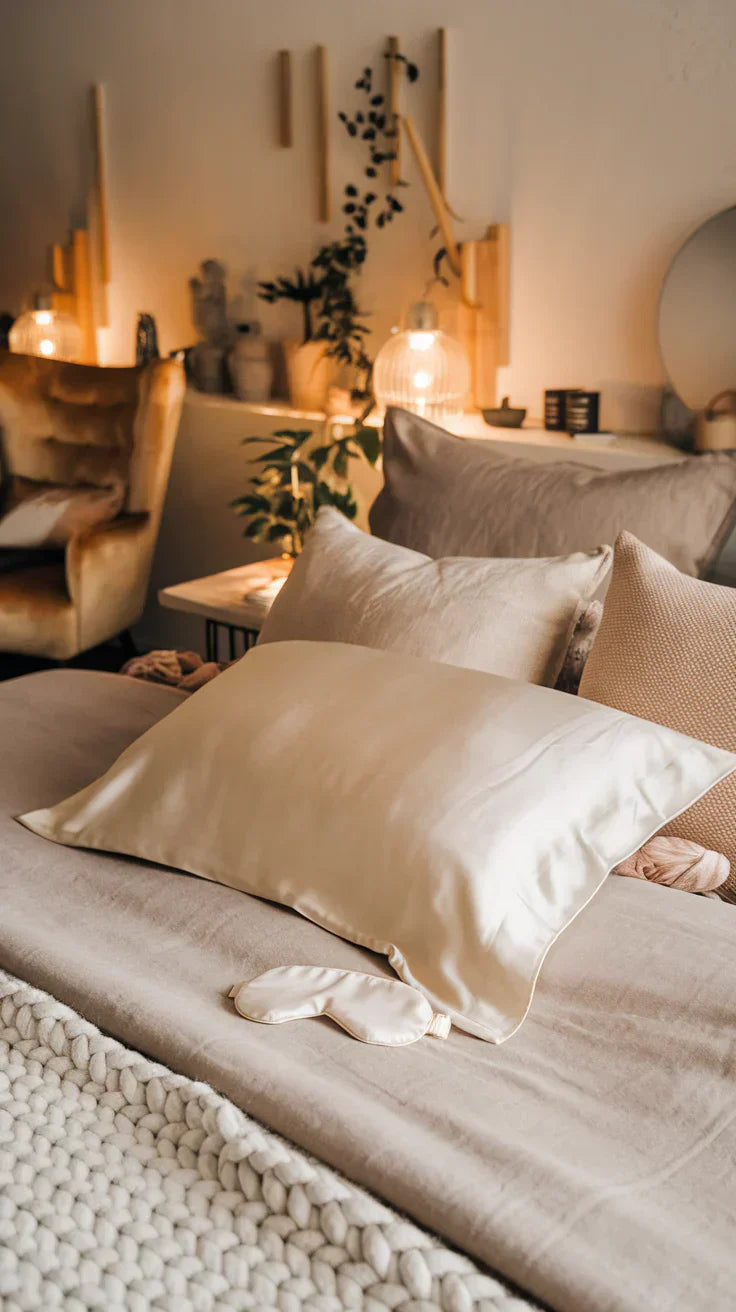
Better Sleep, Better Health: Tips for Falling Asleep Faster Every Night
Share
Sleep is a cornerstone of overall well-being, essential for both mental and physical health. It helps the body recover, process stress, and regenerate at a cellular level. To fully reap these benefits, it’s important to adopt habits that support deep, restorative sleep. Here are some practical tips to help you drift off faster and improve your sleep quality.
Unwind with Meditation and Relaxation
A hectic day can leave your mind racing, making it difficult to relax before bed. Practicing meditation or deep breathing exercises can help calm your nervous system and ease stress. Sitting in a comfortable position and focusing on slow, intentional breaths can quiet mental chatter and prepare your body for sleep.
Reduce Screen Time for a Smoother Sleep Transition
The blue light from electronic devices can interfere with melatonin production, the hormone responsible for regulating sleep. Since your brain interprets this light as daylight, it can throw off your natural sleep-wake cycle. Limiting screen time at least an hour before bed can help signal to your body that it’s time to wind down.
Stick to a Consistent Sleep Schedule
Going to bed and waking up at the same time each day helps regulate your internal clock, making it easier to fall asleep and wake up feeling refreshed. A regular sleep schedule strengthens your body's natural rhythms, reducing sleep disturbances and improving overall sleep quality.
Incorporate Sleep-Friendly Foods into Your Diet
What you eat can impact how well you sleep. Foods rich in tryptophan—such as lentils, chickpeas, sesame seeds, and pumpkin seeds—can help increase melatonin levels, promoting relaxation and restful sleep. Opting for slow-digesting carbohydrates can also stabilize blood sugar levels and prevent midnight wake-ups.
Exercise Regularly for Deeper Sleep
Engaging in consistent physical activity can make falling asleep easier by promoting physical tiredness and reducing stress. Exercise helps regulate mood-boosting hormones like dopamine and endorphins while also aiding in the management of sleep disorders such as insomnia or sleep apnea.
Take a Warm Shower Before Bed
A warm bath or shower before bed can help trigger your body’s natural sleep response. When you step out of a warm shower, your body temperature drops slightly, signalling to your brain that it’s time to sleep. This cooling effect promotes relaxation and enhances sleep quality.
Improve Your Sleep with a Silk Eye Mask
A high-quality silk sleep mask is a simple yet effective way to improve your sleep. Its soft and lightweight material provides ultimate comfort, while its ability to block out light creates the ideal environment for deep rest. By eliminating light disruptions, a sleep mask can help you fall asleep faster and stay asleep longer, allowing your body to fully recharge overnight.
Prioritizings good sleep habits is key to maintaining your health and well-being. Making small adjustments—such as using a silk sleep mask, limiting screen exposure, and following a consistent bedtime routine—can lead to more restorative and rejuvenating sleep every night.
